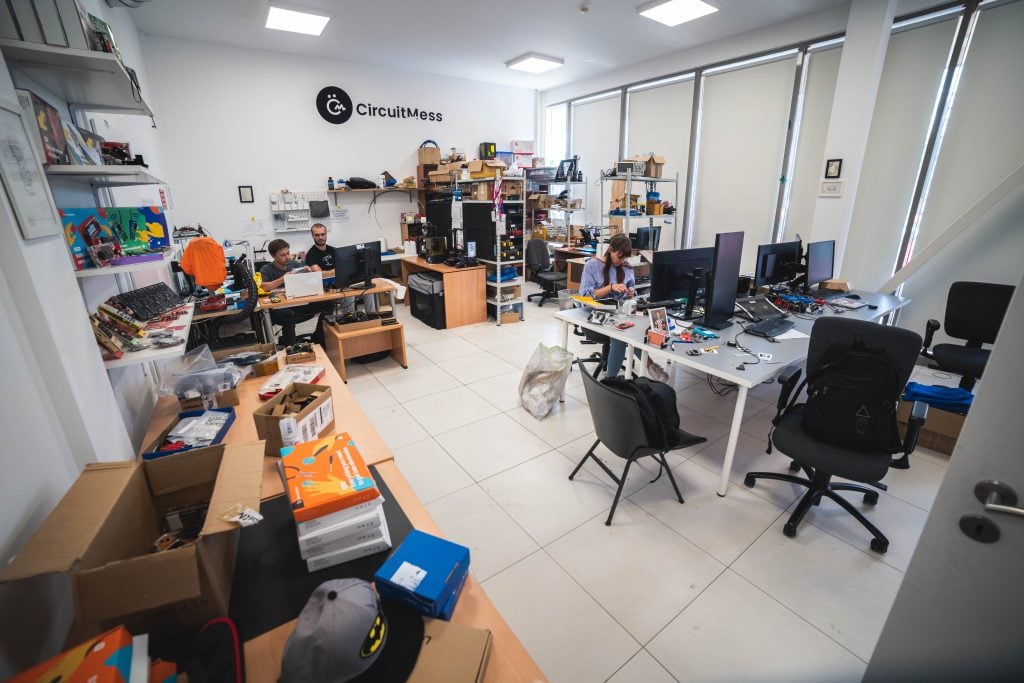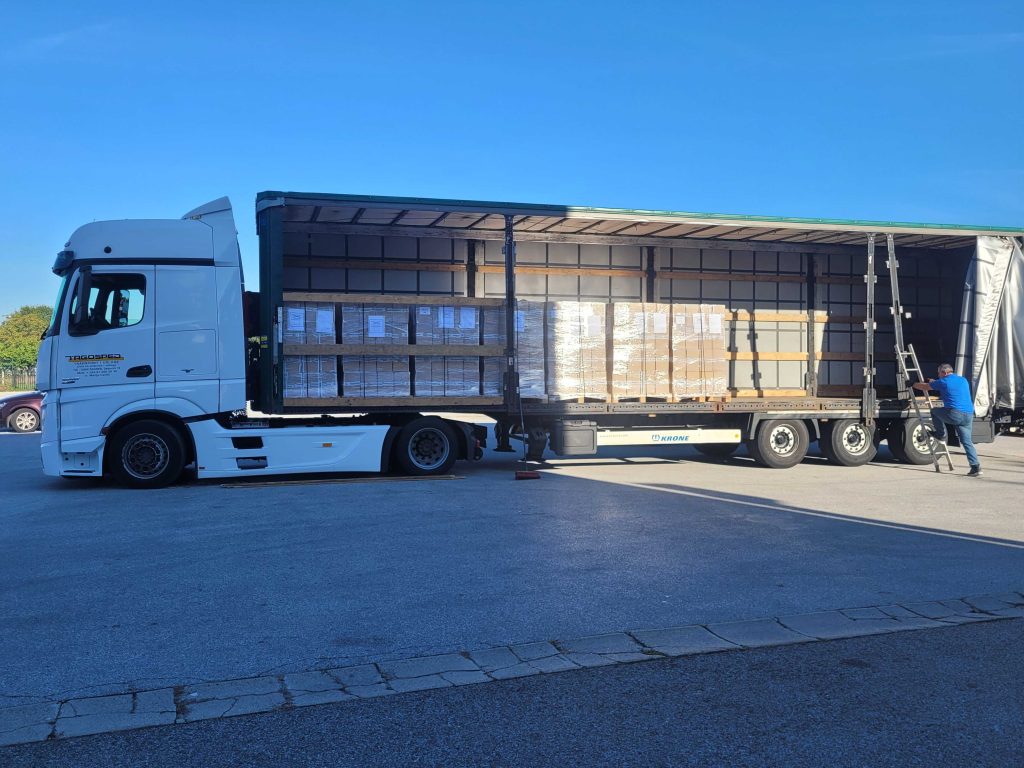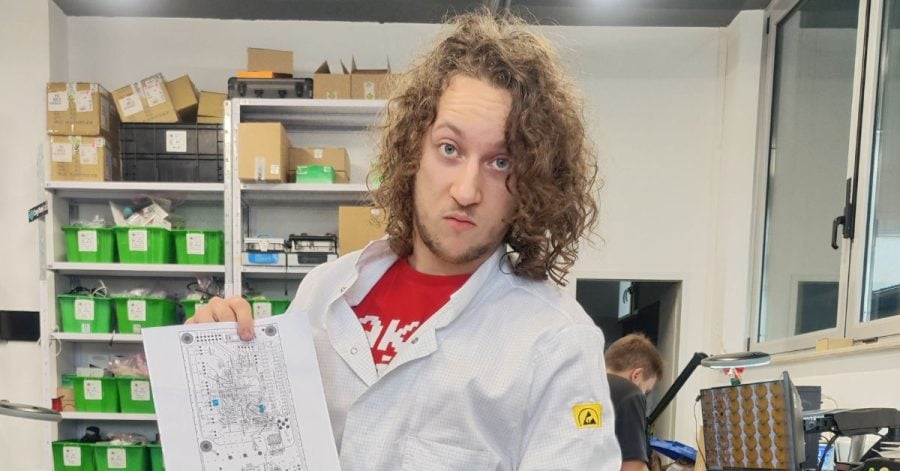When 24-year-old Croatian entrepreneur Albert Gajsak and his edtech startup CircuiMess started to negotiate with US entertainment giant Warner Bros over a potential deal, the dream was so big, that at one point he just wanted to drop it all and give up.
“The dream was so big, you know, those companies were so big, and we were so insignificant that at one point at the beginning I was thinking perhaps I shouldn’t even try. I was this close to not even making a pitch for Warner Brothers because I was thinking like, this is such a waste of time. Like we are probably not going to get this and I’m not sure if I even want to spend time on making the pitch deck,” Gajsak recalls.
However, this wasn’t the story that Gajsak wanted to write – about being almost there, and almost making it.
So, he finished the pitch and kept on negotiating. Three years later, Gajsak and CircuitMess are working not only with Warner Brothers but with another US giant as well – the world’s largest retail chain Walmart.
So how did the small Croatian startup that specializes in do-it-yourself STEM and electronics kits get into this position in the first place? Entering into a relationship with a big brand or company can come with its own unique set of challenges, Gajsak explains.

For himself and CircuitMess, the cooperation with Warner Brothers first started as an internal joke, based on one of the products that they were working on.
“When we were creating the STEM box we also had this car and the earlier prototype of it was looking a bit too much like the Batmobile. So we had this internal joke that we are making the Batmobile – but of course, we couldn’t do it because we didn’t have permission, the trademark, and so on. So at first, it was a joke, but then I started thinking maybe it is something that we could do because the main thing that we wanted to do with CircuitMess was to bring STEM and electronics to everyone in a fun way. And the best way to make this faster would be to somehow connect ourselves with a bigger brand, and maybe it should be a superhero. And there isn’t a bigger superhero than Batman,” Gajsak tells The Recursive.
Below, we peel the layers of how to collaborate with big brands based on the experience of CircuitMess.
How to collaborate with big brands as a startup
Networking your way in
The next step was to pitch the idea to Warner Bros themselves. But how do you approach such a giant of a brand – cold pitching, looking for close connections, or something else?
What worked out for Gajsak was a Croatian connection. He went on LinkedIn and started searching for people that were working with Warner Bros or were somehow affiliated with the company. And after a while, he hit the “jackpot”.
“I found this lady that’s doing something in the licensing business and had a name and surname that looked Croatian. By chance, it turned out that she was an employee of a digital marketing agency where my girlfriend works. So this is how we connected and she got very interested since she heard about us from the media, and then she helped us create the pitch,” Gajsak recalls.
Prepare for the negotiation phase
What followed afterward was a long journey that saw CircuitMess go through several different approval processes.
“We had to go through all those steps and then Warner Bros finally granted us the deal and we signed the contract. One thing that everyone should be aware of is that when you work with them there’s this mismatch of power, so you can’t negotiate with them. But what you can do is be on the good side of their employees, and if there are inside people that are really in love with your product, then they will help push the idea,” Gajsak points out.
Invest in building relationships with your partner
Another lesson for him on how to collaborate with big brands was that while cold pitching is also an option, when you are trying to reach big brands, it’s a tough job.
“All of these big B2B partnerships are usually very relationship-based. The whole process of working with Warner Brothers and working with Walmart was quite similar to fundraising since you have all the same elements when you fundraise. If you send cold emails to the VCs, nobody’s going to do anything. And most of the time, if you find someone who believes in your idea, who is enthusiastic enough to bring your idea back to their division and in front of the investment committee, then you can perhaps get something,” Gajsak tells The Recursive.
Big deals are capital-intensive
As soon as the deals were in place, the various challenges and issues started, Gajsak further explains. From technical to legal and financial standpoints, there were lots of new aspects that CircuitMess and Gajsak learned about and helped prepare them for what was about to follow.

“With Walmart, the biggest problem that we had was that we had to get a huge loan to be able to fulfill this order. It was also very risky, because they ordered products worth more than $1 million and we had to get the loan. Partnerships like these always require lots of capital from you. If you’re a very small startup at pre seed or pre-revenue stage, it’s very tough to work with such big players because they are not going to help you with your cash flow and this is something that you need to figure out yourself, either alone or with some kind of a partner investor for example,” the young Croatian founder explains.
The various insurance policies that global brands usually require were another headache.
“Another challenge with the Walmart deal was that we also had to get a $2 million worth product liability insurance policy. And none of the Croatian insurance companies wanted to insure us. At the same time, no US-based insurance companies wanted to insure our Croatian company too, because they also saw this as a liability, and they only wanted to work with the US companies. So we had to open a US company so we could get this insurance policy,” Gajsak recalls.
Be patient. It takes time
Another lesson on how to collaborate with big brands for CircuitMess was that big companies aren’t as agile as startups and these processes and procedures always take time.
“Of course, they’re not going to be as fast as a team of five people and they have these processes which take time. So this is something that you also need some adaptation for, and as a founder and your company as a whole just have to understand and comply, because this is just the way it works,” he tells The Recursive.
Would he do it again if he had the chance? Of course, Gajsak answers. Working with such brands is a blessing for startups from a financial, PR, and any other standpoint. And this advice for up-and-coming founders and startups is to always seize such opportunities.
“It became one of the best things that happened to our business, helped us learn new things, so it was a very good educational experience to see how we should work with these big companies. If you’re a small startup, it usually looks very scary working with big companies, but founders should try – it will be hard, it will be frustrating, but in the end, it is going to be very much rewarding.” Gajsak concludes.








